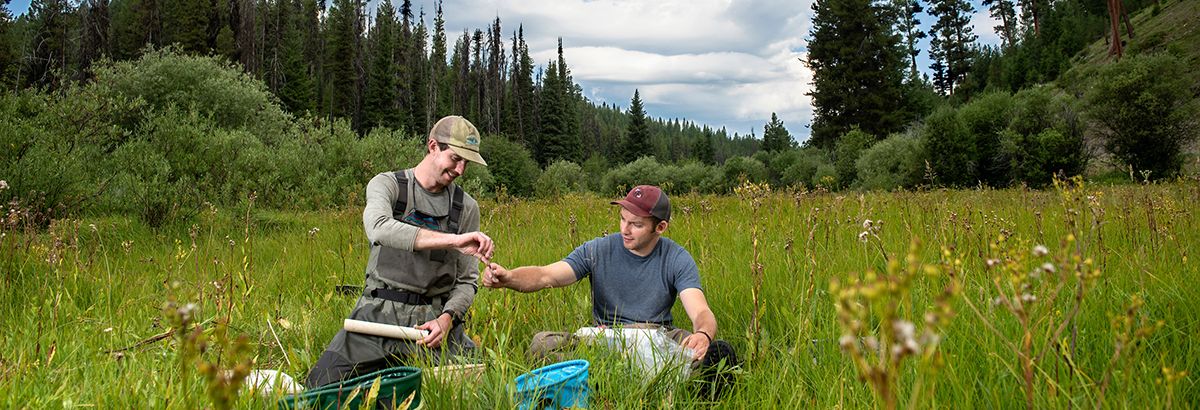Student Spotlight: Lindsey Ellett

In Episode 61, we hear from Lindsey Ellett, a M.S. student studying resource conservation with a focus on international conservation and development. Lindsey shares about her research in marine conservation and the importance of collaboration and inclusion in conservation efforts.
Story Transcript
I think that a lot of the regions in the world that are most impacted by issues like climate change and marine conservation tend to be these developing areas that often have a different level of resources. And I want to be involved in that work in a way that's very cognizant of, you know, coming in as an outsider and reaching out to these communities in a way that will maintain like environmental justice goals.
My name is Lindsey Ellett. I am a master's of science student studying resource conservation in the College of Forestry and Conservation. And then I have a concentration in international conservation and development.
I grew up in Oregon. I kind of grew up going to the ocean on family trips. It was a few hours from where I grew up, but I always really liked, specifically the whales and dolphins and other charismatic megafauna. And I went to Oregon State University for my undergrad, where I studied biology with a concentration in marine biology and a minor in psychology. And so, it kind of led into my internships and research work after graduation. In Massachusetts, I worked with whale and dolphin conservation, and then I went to Maui and worked with Pacific Whale Foundation where I mostly helped out with like population surveys of whales. And then, before I came here, I did a summer in western Australia where I helped out a Ph.D. student with some dolphin social alliance type of work. And so, I started to kind of be more interested in kind of finding that intersection of the biophysical wildlife science with the more people focused side of conservation. And I've always wanted to work internationally because I really think it's interesting seeing all these diverse ecosystems and working with a diverse array of people to try to solve these really complicated problems that don't just affect like the animals, but also affect the communities because I think sometimes it can kind of get the one-sided part of the issue. So, I think balancing that is something I'm really interested in.
So, my thesis project involves looking at the coordination in the Sulu-Sulawesi Seascape for marine protected areas. The Sulu-Sulawesi Seascape is this area between Indonesia, Malaysia, and the Philippines. And it's a huge biodiversity hotspot, which means it has a really great array of like local species and really important kind of ecological currents and things like that make the environment like a really high priority amongst world conservation leaders for protection. So, it's a really cool place to be able to explore. My research has primarily involved first, policy analysis where I kind of look at fisheries policies, environmental policies like, marine protected area policies for each country at the national level just to kind of compare them for similarities and differences that might affect how consistent they are across the borders. If you have a law in one country's waters that doesn't apply in another country, it can make it kind of difficult to control that impact across that border. Whereas if you have similar laws or complimentary laws, that really provide a window of opportunity for kind of strengthening management in that area. And then the second portion of my thesis research involves interviews with a bunch of conservation leaders, fisheries leaders, other related individuals from these countries, and kind of asking them about their perceptions of current coordination, the state of the marine environment in general, whether they think that marine protected areas are being efficient and areas that maybe they could be improved.
I hope to kind of show some of the gaps in policy that maybe individuals could look into or see if there are workarounds with. And then, with the interviews, I think finding kind of those shared goals as well as the discrepancies between perceptions, I hope to be able to create like reports and my thesis that can be given back to those stakeholders. And so, I think having a hand in doing my part to make sure that these conservation goals that are hoping to, you know, preserve these things for future generations is done in a way that is collaborative and inclusive of all the people that will be impacted and doesn't put an overweight of, I guess, costs on the most marginalized communities is really an important forefront to be on.
